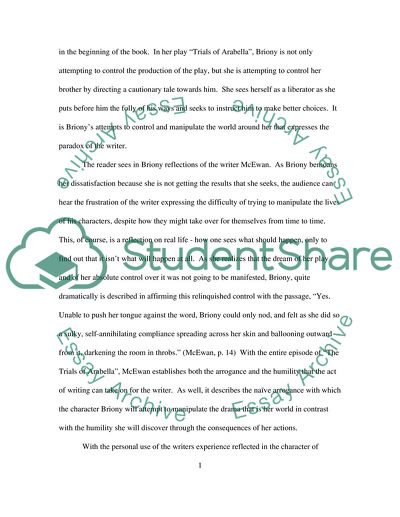Cite this document
(Literary Criticism on the Atonement Novel by Ian McEwan Book Report/Review, n.d.)
Literary Criticism on the Atonement Novel by Ian McEwan Book Report/Review. Retrieved from https://studentshare.org/literature/1550066-literary-criticism-essay-on-the-novel-atonement-by-ian-mcewan
Literary Criticism on the Atonement Novel by Ian McEwan Book Report/Review. Retrieved from https://studentshare.org/literature/1550066-literary-criticism-essay-on-the-novel-atonement-by-ian-mcewan
(Literary Criticism on the Atonement Novel by Ian McEwan Book Report/Review)
Literary Criticism on the Atonement Novel by Ian McEwan Book Report/Review. https://studentshare.org/literature/1550066-literary-criticism-essay-on-the-novel-atonement-by-ian-mcewan.
Literary Criticism on the Atonement Novel by Ian McEwan Book Report/Review. https://studentshare.org/literature/1550066-literary-criticism-essay-on-the-novel-atonement-by-ian-mcewan.
“Literary Criticism on the Atonement Novel by Ian McEwan Book Report/Review”. https://studentshare.org/literature/1550066-literary-criticism-essay-on-the-novel-atonement-by-ian-mcewan.


